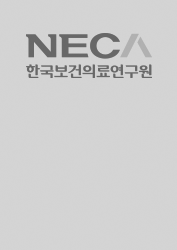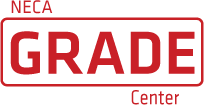▢ 평가배경
한국보건의료연구원은 예비급여 도입 항목의 의사결정 예정 건 중 건강보험심사평가원의 평가의뢰를 받은 항목에 대한 재평가 사업을 수행하고 있다. 본 연구에서는 유방암 호르몬 수용체검사법들 중 정밀면역검사(Immunoassay)의 하나인 “프로게스테론 수용체검사(enzyme immunoassay, EIA)”에 대한 안전성 및 유효성 재평가를 수행하고자 한다.
▢ 위원회 운영
총 8인으로 구성된 소위원회는 2019년 5월 7일부터 약 3개월간 총 1회의 소위원회 회의와 보고서 검독을 진행하였다.
2019년 제2차 의료기술재평가위원회(2019.10.11.)에서는 프로게스테론 수용체검사 (효소면역검사, EIA)의 평가결과를 최종 심의하였고, 제4차 의료기술재평가위원회(2019. 12.13.)에서 동기술에 대한 권고등급을 확정하였다.
▢ 평가방법
본 연구의 소위원회는 해당기술이 검사방법의 번거로움, 방사성 물질 사용에 의한 위험성 등으로 인하여 이미 20여 년 전부터 다른 검사법으로 대체되어 현재 사용이 되고 있지 않은 기술이므로 해당 검사법의 안전성 및 유효성을 현존기술과 비교하는 체계적 문헌고찰은 불필요하다는 견해를 제시하였다. 따라서 본 보고서에서는 유방암 환자에서 프로게스테론 수용체검사법 관련 문헌들의 현황을 광범위하게 조사하고, 현재 유방암 수용체검사 관련 가이드라인에 수록된 내용들을 검토하여 프로게스테론 수용체검사(EIA)과 관련된 내용을 정리하였다. 또한 국내 프로게스테론 수용체검사(EIA)의 실제 사용현황을 파악하기 위해 학회 및 전문가 의견 조사를 실시하였다.
▢ 평가결과
국외 임상진료지침
국외 임상진료지침 검토 결과 대부분의 지침에서 표준검사법으로 효소면역검사가 아닌 면역조직화학검사를 통한 프로게스테론 수용체검사에 대하여 기술하고 있는 것을 확인하였다. 대부분의 임상진료지침에서 효소면역검사(EIA)에 대한 기술은 찾을 수 없었다. 한 편의 문헌(캐나다 온타리오, 2012)에서 면역조직화학검사(IHC)가 효소면역검사 등 모든 검사법을 대신해서 사용하여야 한다고 권고하였다.
선행 의료기술평가 보고서 및 체계적 문헌고찰
선행 의료기술평가 보고서는 확인할 수 없었으나, 면역조직화학검사에 대한 체계적 문헌고찰 연구 한 편에서 효소면역검사와 일부 비교한 결과를 확인할 수 있었다. 연구결과 IHC 검사법을 사용한 프로게스테론 검사가 내분비 치료에 대한 환자 반응을 일관되게 예측하고, 무병 생존율 등을 잘 예측한다고 보고하였다.
EIA 및 다른 검사법과의 비교문헌 현황
유방암 환자에서 프로게스테론 수용체검사(EIA)에 대한 문헌의 현황을 살펴보고자 국외 2개 자료원에서 총 1,859개 문헌을 검토한 결과, 유방암 환자에 대하여 EIA법을 이용한 유방암 수용체검사법과 관련된 문헌은 68편이 검색되었으나, 이 중 프로게스테론 수용체검사(EIA)와 다른 검사법을 비교한 연구결과를 제시한 문헌은 19편이었다. 해당 문헌은 대부분 2000년 이전에 출판된 문헌이었고, 2000년 이후에 출판된 문헌은 4편으로 2007년 이후에는 관련 문헌이 없었다.
1990년대 출판된 논문들에서 EIA와 DCC 방법으로 측정한 프로게스테론 수용체 값을 분석한 결과 상관관계 및 일치도는 비교적 높은 것으로 보고되었으나, 2000년대 이후 다른 검사방법들이 개발되면서 최근에는 유방암에서 에스트로겐 수용체(ER)와 프로게스테론 수용체(PR) 상태를 결정하기 위해 면역조직화학검사법(IHC)이 통상적으로 사용되고 있으며, EIA에 비해 IHC 검사법이 우수하다고 일관성 있게 보고하였다.
전문가 및 학회 의견
본 평가의 소위원회 임상전문가들은 효소면역검사를 이용한 프로게스테론 수용체검사법은 검사방법이 어렵고 tumor 이외 주위의 정상조직도 같이 포함되어 측정될 수 있으며 재현성도 떨어지는 검사법으로써 실험적으로 사용될 수는 있으나 현재는 사용하지 않는 기술이라고 하였다. 최근에는 유방암 환자에서 에스트로겐 및 프로게스테론을 측정하기 위한 표준검사방법으로 면역조직화학검사법이 사용된다고 하였다.
관련학회에 유방암 호르몬 수용체검사법의 사용실태에 대한 문의 결과, 대한병리학회에서는 EIA법에 대하여 “현재 사용하고 있지 않으며 해당검사는 면역조직화학염색(IHC) 검사로 대체”된 것임을 확인해 주었다.
▢ 결론
본 연구는 연구의 시의적절성을 고려하여 유방암 환자에서 프로게스테론 수용체검사 (EIA)에 대한 국외 가이드라인 및 관련 문헌고찰을 통해 문헌적 근거, 임상전문가 및 학회 의견 등을 정리하였다.
유방암 환자에 대한 호르몬 수용체검사법의 하나로 현재 국내에 비급여 등재되어 있는 프로게스테론 수용체검사(Progesterone Receptor-EIA법; 노 284)에 대하여 문헌검색을 통해 재평가를 수행한 결과, 프로게스테론 수용체검사(EIA)법과 다른 검사법을 비교한 문헌은 2007년 이후 최근 10년 동안 존재하지 않는 것으로 나타났다. 또한, 전문가 및 학회 의견 조사 결과 현재 효소면역검사를 이용한 프로게스테론 수용체검사법은 사용되지 않고 있음을 확인하였다.
소위원회에서는 국내외 출판 문헌 및 가이드라인, 관련학회 의견 등을 종합적으로 검토한 결과, 유방암에 대한 프로게스테론 수용체검사 방법 중 면역조직화학검사(IHC)가 임상적 유용성이 있고, 현재의 표준검사법(current standard of practice)인 것으로 판단하였다.
의료기술재평가위원회는 유방암 환자에 대한 프로게스테론 수용체검사법의 하나인 효소면역검사법(enzyme immunoassay, EIA)의 사용을 권고하지 않는다(권고등급 Ⅱ).
▢ Background
The Korea National Evidence-based Healthcare
Collaborating Agency (NECA) runs a program to reassess items for which
decision-making on preliminary coverage is scheduled for 2020, following a request by the Health Insurance Review & Assessment Service
(HIRA). In this study, a safety and effectiveness reassessment of "Progesterone
Receptor Testing [enzyme immunoassay, EIA],” an immunoassay method used in breast
cancer hormone receptor testing, was performed.
▢ Committee operation
A subcommittee of 8 members met once and
examined the report over approximately 4 months from May through August 2019.
The Health Technology Reassessment Committee
conducted the final review of the assessment results of the progesterone
receptor testing (EIA) during the 2019 2nd committee meeting (October 11, 2019)
and made a final decision on the grade of recommendation for the said
technology during the 4th committee meeting (December 13, 2019).
▢ Methods
The subcommittee expressed that it would be
unnecessary to conduct a systematic review to compare the safety and
effectiveness of the said technology and the currently used testing methods
because it was replaced with other testing methods approximately 20 years ago
due to the hassle associated with conducting the test and the risk associated
with using radioactive material. Accordingly, in this report, the information
on EIA in progesterone receptor testing was summarized based on a review of the
current literature relevant to the methods of progesterone receptor testing in breast
cancer patients as well as the details of the guidelines for hormone receptor tests
for breast cancer. Additionally, the opinions of academic societies and experts
were sought to understand the current domestic trends of EIA in progesterone
receptor testing.
▢ Results
Clinical practice guidelines
developed outside Korea
A review of the clinical practice guidelines
developed outside South Korea revealed that a majority described progesterone
receptor testing based on immunohistochemistry (IHC) rather than EIA as the
standard testing method. The descriptions of EIA were not found in most
clinical practice guidelines. In an article (Ontario, Canada, 2012), it was
recommended that IHC should replace all other testing methods, including EIA.
Previous health
technology assessment report and systematic review
In a systematic review article on IHC, the
committee found some comparisons involving EIA. The article reported that
progesterone testing based on IHC, compared with EIA, predicted patient
response to hormone therapy more consistently and predicted disease-free survival
rate more accurately.
Literature comparing EIA and other testing methods
To examine the current literature on
EIA in progesterone receptor testing in breast cancer patients, 1,859 articles
were extracted from 2 foreign data sources. Of those, 68 articles reported on
the use of the EIA method in progesterone receptor testing in breast cancer
patients. Nineteen of those compared the EIA with other progesterone receptor
testing methods, most of which were published before 2000; 4 were published
after 2000. None of the articles were published after 2007.
Studies published in the 1990s compared
the progesterone receptor levels measured using EIA and the dextran-coated
charcoal method (DCC) and found that the correlation and agreement between the
methods were relatively high. However, as other testing methods were developed during
and after the 2000s, IHC is currently commonly used to determine the statuses
of the estrogen receptor (ER) and the progesterone receptor (PR). It is
consistently reported that IHC is superior to EIA.
Opinions of experts and academic
societies
The subcommittee's clinical experts stated that
progesterone receptor testing using EIA is difficult to perform; measurements
do not involve only the tumor but also the surrounding normal tissue. They also
stated that the test-retest reproducibility is low and it is not currently used
in practice, although it may be used for experimental purposes. Additionally, they
stated that IHC is the current standard for measuring the status of the ER and the
PR in breast cancer patients.
Relevant academic societies were contacted about
the current use of hormone receptor testing methods. The Korean Society of
Pathologists confirmed that EIA "is not currently used and it has been
replaced with IHC."
▢ Conclusion
Considering
the timeline of the study, this study summarized the evidence in the literature
by reviewing the guidelines developed outside South Korea for progesterone
receptor testing based on EIA in breast cancer patients, other relevant
literature, and the opinions of clinical experts and academic societies.
The reassessment of Progesterone Receptor-EIA
(No-284), a method used to test the status of hormone receptors in breast
cancer patients that is not currently covered by the national health insurance,
showed the following. In the literature review, articles comparing EIA and
other testing methods published after 2007 were not found. In addition, experts
and relevant academic societies confirmed that EIA is not currently used to
test the status of the progesterone receptor.
Based on a comprehensive review of the
literature and guidelines published within and outside Korea and the opinions
of academic societies, the subcommittee determined that IHC is a clinically
useful progesterone receptor testing method for breast cancer and the current standard
of practice.
The Health Technology
Reassessment Committee does not recommend the use of EIA for progesterone
receptor testing in breast cancer patients (Grade of Recommendation: II).

 프로게스테론 수용체검사 [EIA]의 안전성 및 유효성 평가.pdf [다운로드수 : 821]
바로보기
프로게스테론 수용체검사 [EIA]의 안전성 및 유효성 평가.pdf [다운로드수 : 821]
바로보기 · 저작자표시
· 저작자표시 · 출처표시
· 출처표시


















 한국보건의료연구원
한국보건의료연구원